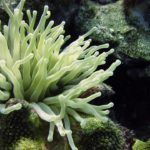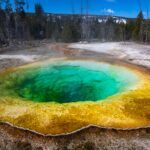The Commission has adopted a revised EU Action Plan to put an end to illegal wildlife trade, as announced in the Biodiversity Strategy for 2030. The lucrative global black market in illegal wildlife trade contributes to the depletion or extinction of entire species and furthers zoonotic diseases – diseases that spread between animals and humans. According to the 2020 World Wildlife Crime Report by the United Nations Office on Drugs and Crime, every country in the world is affected by wildlife trafficking, with a wide variety of species involved, from eels to pangolins to rosewood. The updated plan will guide new EU actions against wildlife trafficking until 2027, building on the first Action Plan adopted six years ago.
The revised plan has four main priorities:
- Preventing wildlife trafficking and addressing its root causes, by reducing consumer demand for illegally traded wildlife, supporting sustainable livelihoods in source countries, and tackling corruption at all levels;
- Strengthening the legal and policy framework against wildlife trafficking, by aligning EU and national policies with international commitments and latest evidence, and engaging with business sectors involved in the wildlife trade;
- Enforcing regulations and policies to fight wildlife trafficking effectively, by improving the rate of detection of illegal activities within the EU, focusing on capacity-building along the entire enforcement chain, encouraging coordination and cooperation within and between Member States and increasing efforts in tackling the online aspects of wildlife trafficking;
- Strengthening the global partnership of source, consumer and transit countries against wildlife trafficking, by enhancing their capacity and improving cooperation between the Member States, EU enforcement actors and key non-EU countries.

COP27: EU launches Forest Partnerships with five partner countries
|
In November, parties to the Convention on International Trade in Endangered Species of Wild Flora and Fauna (CITES) will meet in Panama to consider stricter trade regulations for nearly 600 species of flora and fauna. The EU will bring this revised action plan along with a strong package of proposals for species to be listed in CITES Appendixes at CITES COP19.
Background
Illegal wildlife trade is a driver of biodiversity loss, can vastly weaken wild populations of flora and fauna, and in some cases drive them to extinction. Wildlife trafficking also has destructive socio-economic consequences as the destruction of ecosystems which can result from poaching and trafficking often deprives local communities of legal and sustainable forms of income. As the Covid-19 pandemic has recently highlighted, unmanaged wildlife trade can be a source of the spread of zoonotic diseases, with potentially devastating results for public health.
The EU is a hub for global wildlife trafficking and has a key role to play in the fight against it. The reported value of the illegal wildlife trade in the EU was a minimum of €4.7 million in 2019 but is likely to be much larger. EU Member State authorities consistently seize wildlife in various commodity types ranging from medicinal, corals, reptiles, birds, plants, and mammals. Since 2017, there have been on average over 6,000 annual seizures involving CITES-listed wildlife in the EU.
The revised Action Plan comes at a critical moment for preserving global biodiversity. It shows that the EU is leading by example ahead of two major international meetings: the United Nations Biodiversity Conference COP15 in Montreal in December, where parties are expected to reach a global deal to halt and reverse the continued destruction of biodiversity, and CITES COP19 in Panama, 14-25 November.
Source: European Commission







Leave a Reply